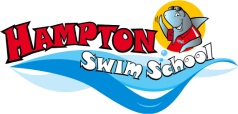Learning Plateau
Learning Plateau
Aug 18
It is likely there will be stages during the learn-to-swim process when your child experiences a “learning plateau”. During a period of skill acquisition or technique mastery, a “learning plateau” describes the feeling or appearance that your child is making little or no progress, no matter how hard they seem to be trying.
It is important for parents to acknowledge that a learning plateau is a normal element of the learn-to-swim process, and that it is generally experienced when swimmers reach a level that is intrinsically challenging (i.e. learning to coordinate bilateral freestyle breathing for the first time).
Children often make wonderful advances when they first begin learning to swim and, as the child builds rapidly on their knowledge and skill base in these initial stages, their progress is marked and is easily identifiable and able to be measured. Thereafter, the learning tends to be more gradual and consists of a consolidation and extension of existing skills and knowledge where, as the learner strives to refine his/her skills, such progress is less apparent. It is at these times that the parent begins to reconsider the value of continuing to pay for lessons, or indeed to contemplate removing the child from the lesson to “give them a break’.
My advice is DO NOT STOP!! Consideration of the following tips will help expedite your child’s transition through a “learning plateau” and, in turn, will validate your decision to continue swim lessons……
1) Maintain continual commitment to lessons. Consistent practise involving skill reinforcement accelerates the learning process. Interruption to lessons results in a loss of momentum and, more often than not, necessitates the re-teaching of the child upon lesson recommencement.
2) Create as much time as possible to practise. Consider taking an additional weekly lesson, do revision at home (in a pool if you have access to one, or instead simply through discussion and on-land demonstration), or schedule a visit to your local pool.
3) Remain positive and supportive of your child as they pass through this stage. Praise and reward any observed improvements. Be patient; expect these plateaus to occur, and don’t pressure your child.
4) Talk to your Swim School about the things you can do to make the transition through a learning plateau stage easier. Instructors are trained to recognise when development is occurring, and indeed may be aware that the child is progressing when the parent is otherwise unaware of any improvement.
5) Make yourself aware of the sensitivity offered by instructors to children in a “learning plateau” phase. An effective instructor will provide guidance and alternative activities to assist a child during a period of skill stagnation. Such instruction may comprise implementation of a skill or a drill in a different way, or a focus on learning through fun to ensure the swimmer continues to enjoy lessons during a challenging plateau period.
Swimming is a lifelong skill that takes many years to master. An awareness and an understanding of the “learning plateau” phases inherent in swimming development will serve a parent well as they help their child along this pathway to swimming mastery. © 2010 Julia Ham/Hampton Swim School Pty Ltd
